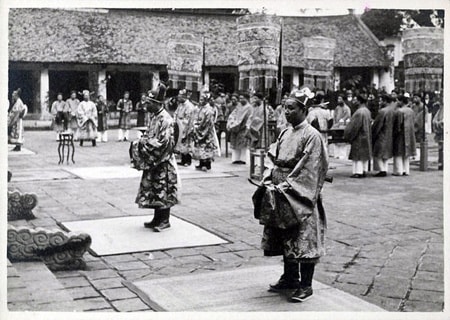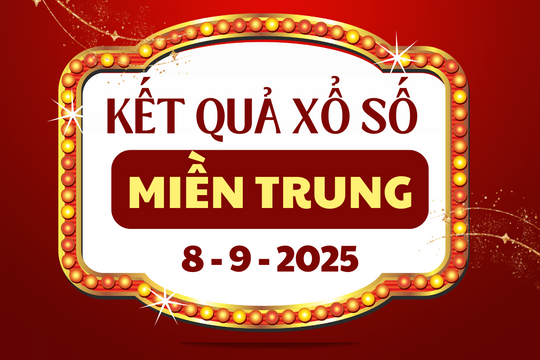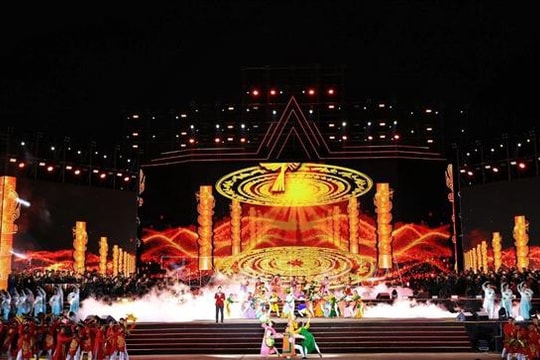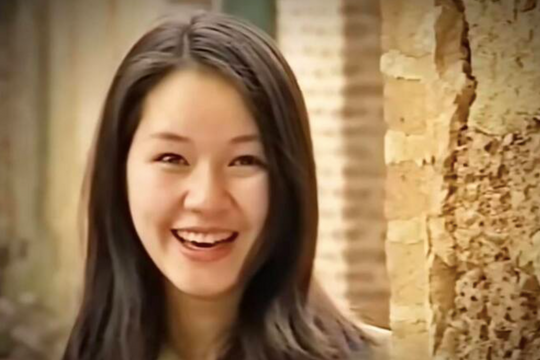How did the ancient mandarins retire?
Military officials retired at 70 years old, while civil officials retired at 65 years old, a regulation from the Later Le Dynasty. After that, all officials retired at 65 years old, a regulation that applied until the Nguyen Dynasty.
According to the Chronicles of the Dynasties by Phan Huy Chu, in the section on Officials, since the Tran Dynasty, there has been a custom for officials to retire (retire). Historical books record that Nguyen Tien Ngo retired and then became an official again.
During the reign of Le Thanh Tong, the king issued an edict to civil and military officials in office, if they reached the age of 65 and wanted to retire, they must write a petition to the Ministry of Personnel, and submit it for implementation.
Since the Le Trung Hung period (from Le The Tong), the rule was that civil and military officials would retire at the age of 70. This shows that the age of officials in the Le Dynasty was very high. According to the rule, any official who reached the age of 69 would have to write a petition at the end of the year, and have it discussed by the officials and presented to Lord Trinh for consideration, so that they could be promoted to a higher rank upon retirement.
 |
Nguyen Dynasty mandarins. Illustration photo. |
Some specific cases recorded the retirement of mandarins in the early Le Trung Hung period, such as Thai Pho Nguyen Thuc and Thieu Pho Nguyen Minh Triet, both retired at the age of 80. The Minister of War Nguyen Khai retired at the age of 78.
During the reign of Le Du Tong, in the 15th year of Vinh Thinh (1719), a regulation was issued that for military officials, eunuchs from Dong Tri Giam Su and above could retire at the age of 70, and those from the sixth rank and below could retire. The regulations for civil officials were similar.
During the reign of Le Y Tong, in the third year of Vinh Huu (1737), the civil mandarin Han Lam Thua Chi Tran An Triem asked to retire at the age of 65. Lord Trinh Vuong Trinh Giang approved it. From then on, civil mandarins were allowed to retire at the age of 65.
During the reign of Le Hien Tong, many officials wanted to retire early. Both civil and military departments submitted petitions requesting to retire at the age of 60. Lord Minh Vuong Trinh Doanh did not agree with the petitions and decided that officials had to be 64 years old before they could request to retire.
By the end of Hien Tong's reign, many civil servants over 60 years old were tired of being officials. At that time, Lord Tinh Vuong Trinh Sam ordered to follow the old rule, officials were only allowed to retire at 70 years old.
When it came to Lord Doan Nam Vuong Trinh Khai, Prime Minister Bui Huy Bich submitted a petition to return to the recent custom, allowing officials aged 65 to retire to show favor to their old age. The Lord listened.
Phan Huy Chu commented that in the early Le Trung Hung period, retirement was not considered glorious, so perhaps that was why officials tried to work despite their old age. According to the Le Dynasty tradition, retired officials who were called back to work (reinstated) were considered to have a privilege.
The custom at that time was that on the day a mandarin retired, all the mandarins in the court would write congratulatory poems, one by one, on silk, and hold a farewell party. When Yen district chief Pham Cong Tru (1600-1675) retired at the age of 70, he had a poem circulated with his fellow mandarins. Up to 50 people from the prefectures, ministries, offices, departments, colleges, and institutes would write poems on silk curtains, and drink wine to see him off on the river pavilion. From then on, it became a custom.
From the time of Le Du Tong, the first year of Bao Thai (1720) onwards, when officials reached retirement age, the king issued royal decrees, officials organized celebrations to praise their achievements, and the carriages were seen off in a bustling atmosphere, which was considered "a good story in times of peace".
During the Nguyen Dynasty, the regulation that officials would retire at the age of 65 was still maintained. However, for high-ranking officials, the application was perhaps not as strict and depended on the circumstances.
Nguyen Cong Tru, both a civil mandarin and a military general, retired in 1847, the first year of Tu Duc's reign, at the age of 69. Dong Cac Dai Hoc Si Cao Xuan Duc, General Manager of the National History Institute, retired in 1913 at the age of 70. In 1933, when King Bao Dai decided to reform the court apparatus and retire all 5 ministers, Minister of the Ministry of Personnel Nguyen Huu Bai was already 70 years old.
However, history still records special exceptions. For example, Mr. Doan Tu Quang, from Huong Son district, Ha Tinh, passed the bachelor's exam in 1900 at the age of 82, and was still specially appointed as the instructor of Huong Son district, then instructor of Can Loc district. At the age of 85, he asked to retire to take care of his elderly mother.
As for the Imperial Commissioner Tran Dinh Tuc, he was allowed to retire after negotiating with French General Henri Rivière after the second battle of Hanoi (1882), when he was 64 years old. When King Tu Duc died and King Hiep Hoa succeeded to the throne, the French army occupied Thuan An gate, and the Hue court sent Tran Dinh Tuc as the Plenipotentiary Commissioner to negotiate with Nguyen Trong Hop to sign the Quy Mui Treaty (also known as the Harmand Treaty - 1883).
Meanwhile, two high-ranking officials of the Nguyen Dynasty who effectively collaborated with the French, Nguyen Than (Minister of Personnel) and Hoang Cao Khai (Minister of Military Affairs), after fighting for power with each other, were both forced to retire in 1903, when Mr. Than was only 58 years old and Mr. Khai was only 53 years old.
According to VNE


.png)





